
Atayef is a popular pancake-like recipe in the Middle East, where it’s often enjoyed during Ramadan. Unlike traditional pancakes, these are made with yeast – which makes them extra soft and fluffy!
You can stuff them with various ingredients, so check out our suggestions below. The classic sweet filling is made with clotted cream made from whole milk or nuts, but for this recipe, we made it slightly easier by using chocolate spread cream.
Serve these Middle Eastern Pancakes as is for breakfast, or as a dessert with a rose-water simple syrup. The texture is light, soft, and fluffy. Don’t panic when mixing the batter, it will be runnier than regular pancake batter. They’re also not flipped over like you will do other pancakes. To make it, you need typical pancake ingredients, but don’t forget the yeast!

What Is Atayef?
Atayef is known by various names such as gatayef, qatayef, or katayef. It’s often confused with Arabian pancakes, but they’re not the same. These pancakes are filled and soaked in syrup, whereas Arabian pancakes are also made with yeast, but are not filled.
The classic filling for the Middle Eastern Pancakes is called ashta, which is a clotted cream made from milk.
Atayef Ingredients
Flour and semolina – Use all-purpose flour; the semolina adds extra texture to the pancakes.
Yeast – make sure that the yeast is fresh.
Chocolate spread cream – use a good quality brand like Nutella.
Syrup – use honey or maple syrup.

How To Make Atayef
Make the pancake batter: In a bowl mix together the dry ingredients. Then add the water to form a pancake batter. Allow the pancake batter to rest for at least 40 minutes.
Fry the pancakes until bubbles start to form. Don’t flip the pancakes, but remove them. Fill the pancakes, fold them, and seal the edges. Brush with the syrup and bake. Sprinkle with powdered sugar.
Atayef Ashta Filling Ideas
Try one of these delicious combinations:
- Ricotta filling with rose syrup and sprinkled pistachios.
- Caramel filling with whipped cream and coconut flakes.
- Marshmallow fluff filling with chocolate drizzle.
Tips For Middle Eastern Pancakes
If you don’t use the cream as a filling, these pancakes are vegan!
Make sure to rest your pancake batter. This gives the gluten time to relax, which means light and fluffy pancakes. Rest for at least 40 minutes, and up to 2 days.
Use a medium frying pan— either a non-stick pan or a well-seasoned cast-iron pan.
Don’t make the pan too hot, instead cook over medium heat. If the pan is too hot, the batter will cook before it spreads completely to the sides.
Keep the pancakes warm while you are cooking the rest by covering them with foil.

How To Store Atayef
Store the pancakes in an airtight container in the fridge for up to 4 days.
Ingredients
Instructions
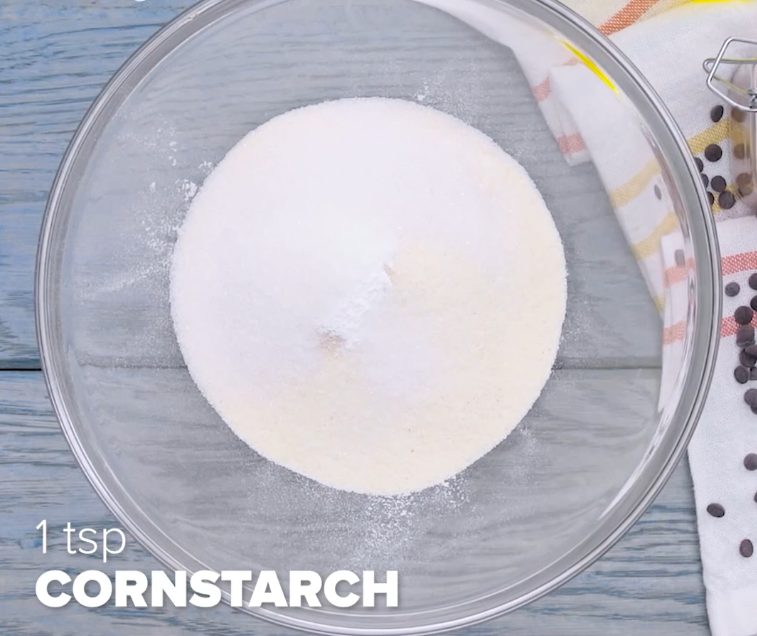;Resize,width=712;)
In a bowl mix together the yeast, sugar, flour, semolina, baking powder and cornstarch.
In a bowl mix together the yeast, sugar, flour, semolina, baking powder and cornstarch.
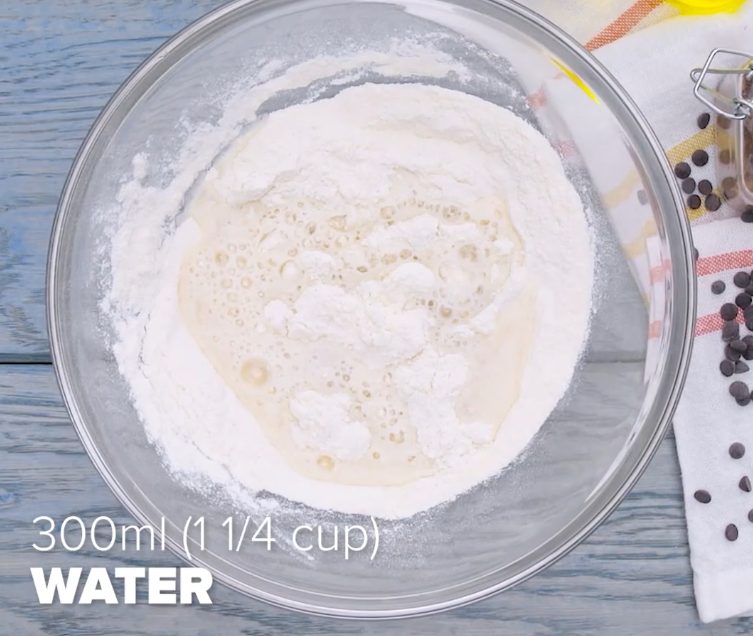;Resize,width=712;)
Add the water and mix until there are no lumps. Allow the dough to rest for 40 minutes.
Add the water and mix until there are no lumps. Allow the dough to rest for 40 minutes.
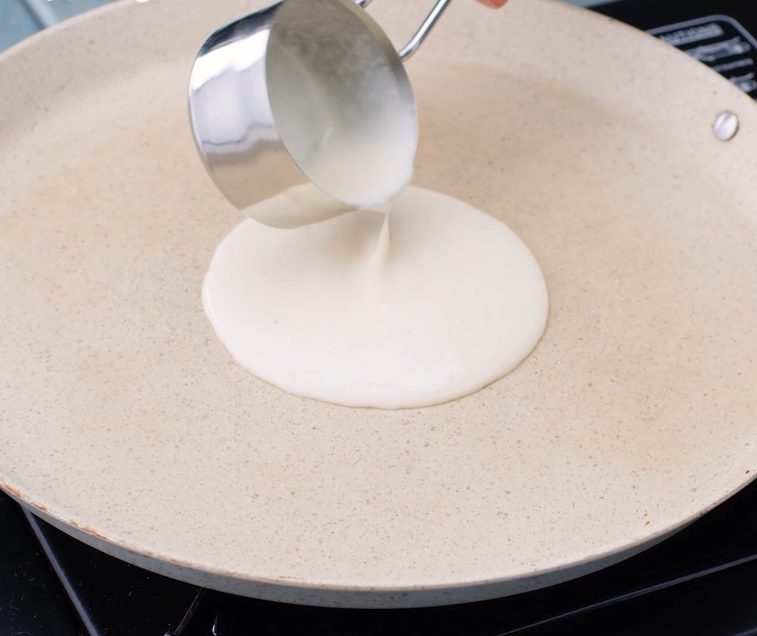;Resize,width=712;)
Use a small cup measure to pour batter into the frying pan.
Use a small cup measure to pour batter into the frying pan.
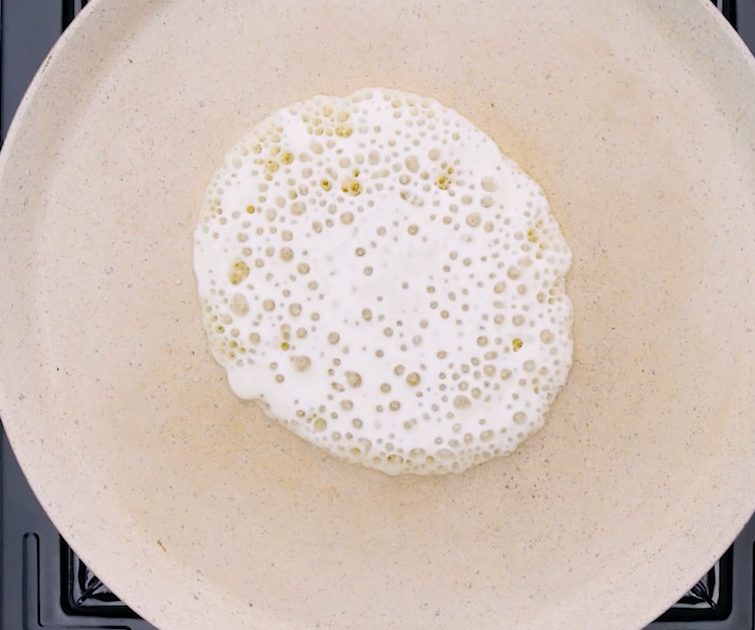;Resize,width=712;)
Once you see bubbles appear on the surface, they are almost ready. Allow the bubbles to form over the whole surface.
Once you see bubbles appear on the surface, they are almost ready. Allow the bubbles to form over the whole surface.
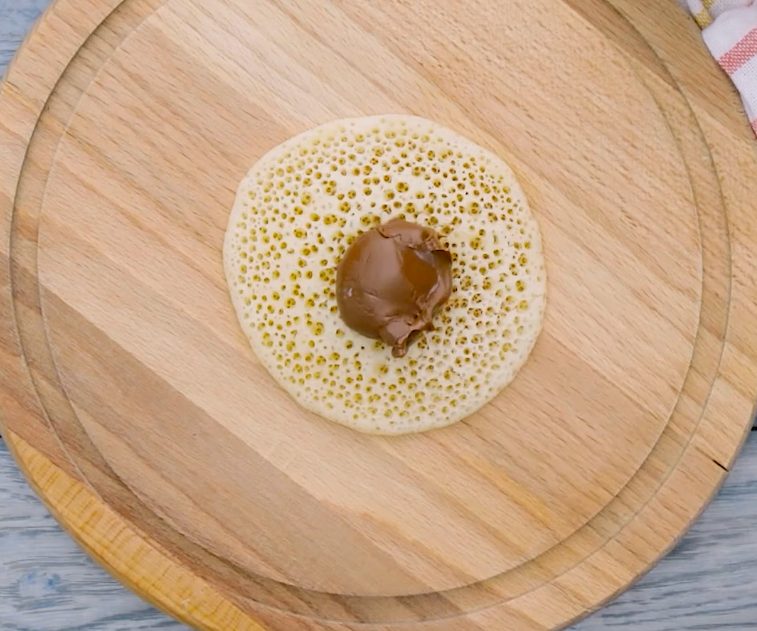;Resize,width=712;)
Once the pancakes are cooked, fill them with a spoon full of hazelnut cream.
Once the pancakes are cooked, fill them with a spoon full of hazelnut cream.
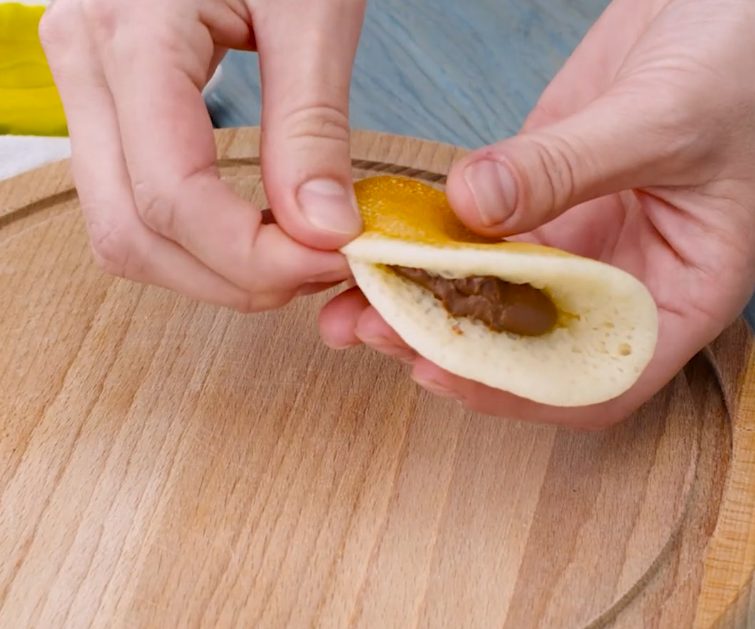;Resize,width=712;)
Fold the pancakes in half, and pinch the pancake edges to seal.
Fold the pancakes in half, and pinch the pancake edges to seal.
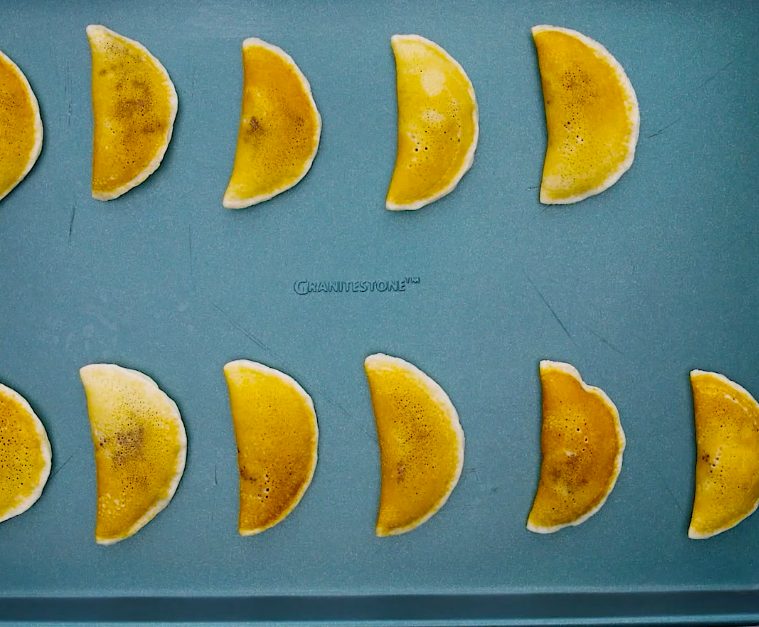;Resize,width=712;)
Place the folded pancakes on a baking sheet and brush them with syrup, and bake at 160°C (320°F) for 20 minutes.
Place the folded pancakes on a baking sheet and brush them with syrup, and bake at 160°C (320°F) for 20 minutes.
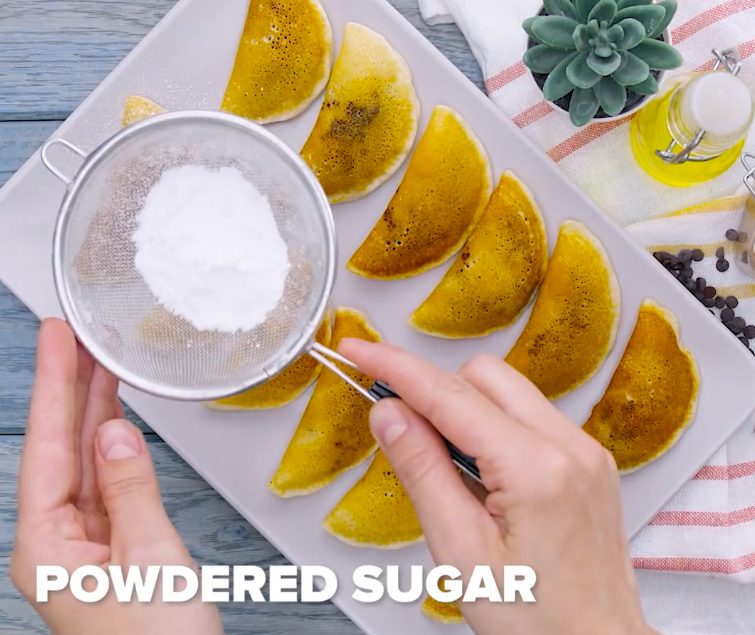;Resize,width=712;)
Sprinkle it with powdered sugar before serving.
Sprinkle it with powdered sugar before serving.
Notes
To make these pancakes extra special, add a pinch of cardamom spice to the batter, and top the cooked pancakes with nuts (pistachio and hazelnuts work great with Middle-eastern flavors).

;Resize,width=767;)
